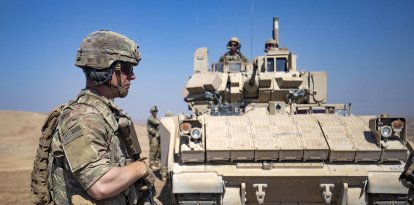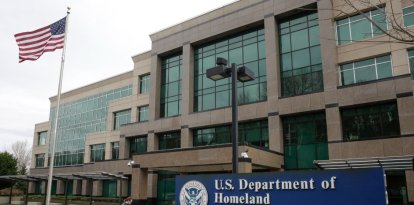After the agreement between Israel and Hezbollah, Biden assured he will make a final effort to reach a ceasefire with Hamas
Less than two months away from leaving office, the Democratic president also said that "peace is possible" in the Middle East.

Biden said he is "praying" to also reach an agreement in Gaza/ Saul Loeb.
Joe Biden celebrated the ceasefire announced between Israel and Hezbollah. The outgoing US president weighed in on the 60-day agreement between Benjamin Netanyahu and the Lebanese terror group, which will take effect on the morning of Wednesday, November 27.
From the White House, Biden assured that the agreement "reminds us that peace is possible" in the Middle East, so he said he was going to use the envoy to push the agreement forward with Hamas in the Gaza Strip.
"Over the coming days, the United States will make another push with Turkey, Egypt, Qatar, Israel and others to achieve a ceasefire in Gaza so the hostages be released and the end of the war without Hamas in power, that becomes possible," the Democratic president said.
Biden has just under two months to achieve such an agreement during his tenure and added that he is "praying" it will happen sooner rather than later.
"Just as the Lebanese people deserve a future of security and prosperity, so do the people of Gaza. They too deserve an end to the fighting and displacement. The people of Gaza have been through hell, their world’s absolutely shattered. Far too many civilians in Gaza have suffered far too much and Hamas has refused, for months and months, to negotiate a good faith ceasefire and a hostage deal," the president added.
Biden also boasted on his X account, where he wrote that Israel-Hezbollah accepted the "U.S. proposal" for a 60-day cease-fire.
">Today, I have good news to report from the Middle East.
— President Biden (@POTUS) November 26, 2024
I have spoken to the Prime Ministers of Lebanon and Israel. And I am pleased to announce:
They have accepted the United States’ proposal to end the devastating conflict between Israel and Hezbollah.
The 13 points of the Israel-Lebanon agreement
The Israeli news portal Ynet listed the 13 points of the cease-fire agreement to be fulfilled by both sides:
- Hezbollah and all terrorist organizations in Lebanon are to refrain from carrying out attacks against Israel.
- Israel will not carry out any offensive military action against targets in Lebanon, whether by land, air or sea.
- Israel and Lebanon recognize the importance of UN Security Council Resolution 1701, which calls for, among other things, the disarmament of terrorist groups and the withdrawal of Hezbollah north of the Litani River.
- The commitments made do not affect the right of Israel and Lebanon to exercise their legitimate right to self-defense.
- Only the security forces and the Lebanese army will be allowed to carry arms or deploy forces in southern Lebanon.
- The sale, import and production of weapons or weapons-related materials in Lebanon will be under the supervision of the Lebanese government.
- All unauthorized facilities for the production of arms and related materials will be dismantled.
- All military infrastructures and bases will be dismantled, and any unauthorized armaments will be confiscated in accordance with the commitments of the agreement.
- A joint committee agreed by Israel and Lebanon will be established to monitor and assist in the implementation of the commitments.
- Israel and Lebanon will report any anticipated violations of the agreement to the committee and to the United Nations Interim Force in Lebanon (UNIFIL).
- Lebanon will deploy its official security forces and army along the borders, at the crossings and on the country's defined southern line, according to the deployment plan.
- Israel will gradually withdraw south of the blue line (the border between Lebanon and Israel) within 60 days.
- The United States will work to promote indirect negotiations between Israel and Lebanon with the goal of reaching a long-term agreement.

























